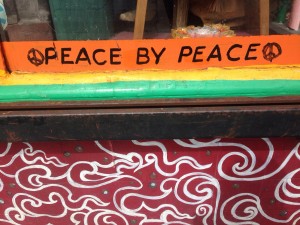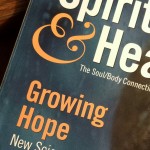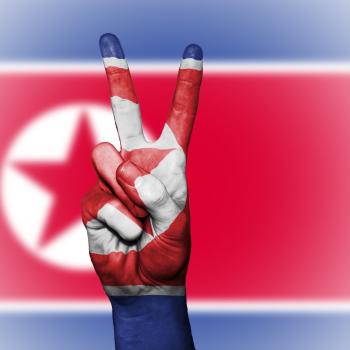
This is a post that originally appeared at debraengle.com more than a year ago. Given recent events, I thought it was worth repeating.
My husband and I were watching PBS the other night and, thankfully, happened to see part of the series on Freedom Riders. This episode focused on the collaboration of strangers from across the U.S. who came together to be trained in nonviolent resistance.
From different races, levels of education and geographic regions, they boarded buses together, bound for the deep South and a higher purpose: to end segregation.
Put this together with a TED talk I listened to on my walk this morning. The topic was cheating, and it was presented by behavioral economist Dan Ariely. He gave two examples of experiments in which people declined to cheat, even though participants in other experiments had done so routinely.
Those who didn’t either had been instructed to think about the 10 Commandments or the MIT honor code (never mind that it doesn’t exist). In both cases, people didn’t cheat, implying that if there’s a mention of morality, it gives people pause.
The combination of these two programs brought up a question for me: Why don’t we use what we know?
We know that nonviolent movements can create lasting change. And we know that introducing some level of conversation about honesty, character, kindness, and decency into our daily lives also creates change.
The thing we don’t know is, why don’t we put these tools to work every single day?
Let me just mention that I’m not talking about adhering to a strict moral code. Moral codes are invented by humans who end up fighting each other about what morality means.
I’m talking about drawing on the better part of ourselves to change the conversation. Instead of complaining, it means talking about possibilities. Instead of focusing on weaknesses, strengths. Instead of anticipating attack or fighting back, it means planting our feet and standing firmly for a peaceful resolution.
There are people who say they don’t know what the answer is to the world’s problems. This, I believe, is an abdication of will. We know what the answer is. It’s just that there’s a part of ourselves that doesn’t want to act on it. That’s the part of our mind that feels alone and separate and ready to defend itself even when there’s nothing to defend against. It’s the part of us that feels guilty and thinks it can only get relief by making everyone else feel guilty, too.
This is not the way.
We know the way. It’s not one religion or one honor code or one definition of morality. It’s the way of drawing on our better nature to expect more of ourselves. It’s the way of forgiveness. It’s the way of asking a higher power for help. It’s the way of the Freedom Riders, of valuing peace above all else and then standing for it.
We may think there has to be a big moment, a big war, a big injustice to precipitate change. But the change we need is not just in ending wars or injustices on a large scale. We need the kind of change that will end the cycle of blame and attack that we’ve all engaged in for countless centuries. We need a paradigm shift in what it means to co-exist on the planet, whether it’s in our families, our communities, or our nations.
There have been plenty of way-showers in every culture, religion and neighborhood. Let’s emulate them. Let’s speak in calmer voices and listen to one another’s concerns. Let’s realize that every war—whether it’s between countries or between neighbors—is a civil war. And let’s do something truly different.
Let’s give up the fight. Use what we know. And let’s get on board, bound for a higher ideal.












